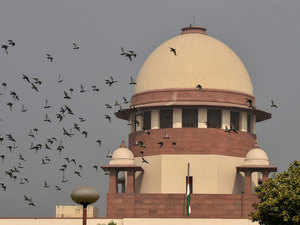 PTI
PTIThe rule (in Indian courts) is first surrender yourself to the jurisdiction of the local courts and then your case will be heard, Solicitor General Tushar Mehta argued before a bench led by Chief Justice of India Ranjan Gogoi. He urged the top court to order Aditya Talwar, son of corporate lobbyist Deepak Talwar and wanted in connection with a money laundering case, to return to the country.
Appearing for the Enforcement Directorate, Mehta claimed that Talwar was an Indian passport holder who shifted to Antigua. This is a Rs 300-crore scam where money has been siphoned off to other countries, the government’s second senior-most lawyer told the court. The Talwars are accused of several illegalities in aviation deals during the UPA era. Deepak Talwar has been in ED’s custody since January.
The Delhi High Court had allowed Talwar junior to appear in the case before a special court through a counsel. The government has challenged this before the top court. Talwar’s lawyers Kapil Sibal and Mukul Rohatgi denied the government’s charges. Sibal claimed that Talwar wasn’t an Indian passport holder in the first place, and alleged that the government has slapped money laundering charges on him without even filing a chargesheet against him in a Central Bureau of Investigation case on the matter in 2017.
“How can there be illegal proceeds (of crime) without a chargesheet?” Sibal argued. He claimed that no summons were issued to Talwar in the case by CBI, and no witnesses were ever examined. The three-judge bench led by the CJI eventually stayed the proceedings before the special court. “Why should any indulgence be given to a fugitive is your argument?” the CJI observed before passing a short order. The bench issued notices to Talwar and set the next date of hearing on July 23.
Read More News on
(Catch all the Business News, Breaking News, Budget 2024 Events and Latest News Updates on The Economic Times.)
Subscribe to The Economic Times Prime and read the ET ePaper online.
Read More News on
(Catch all the Business News, Breaking News, Budget 2024 Events and Latest News Updates on The Economic Times.)
Subscribe to The Economic Times Prime and read the ET ePaper online.









 Get Unlimited Access to The Economic Times
Get Unlimited Access to The Economic Times
